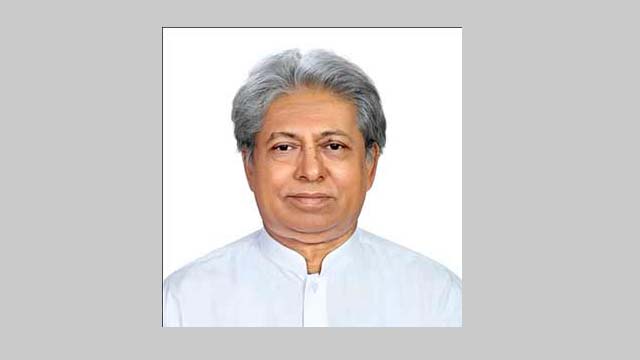
Public procurements lack clarity
Published:
১৪ জানুয়ারী ২০২৪, ১১:৪৬

Despite the advantages of competition, markets are often characterized by anti-competitive practices and structures, especially in developing countries. The market also has monopolies of state-owned enterprises. In certain cases, single operators hold large market shares in key sectors in many countries. Usually in a market, the lack of competition has significant potential costs, hurting the poor through higher prices of essential items and undermining external competitiveness and economic growth. Bangladesh is no exception.
The anti-competitive market conditions are reflected in public procurement. The key principle of public procurement is set out in the regulations is that public bodies "shall treat economic operators equally and without discrimination and shall act transparently and proportionately". These regulations also set out the underlying principles of equal treatment and seek to ensure that public bodies follow fair and reasonable procurement timetables and procedures. Regulations require government departments to use competition and the government's commercial function should establish competition as the default approach to procurement.
Bangladesh passed the Public Procurement Act (PPA) 2006 and the rule under the law promulgated the Public Procurement Rules (PPR) 2008. To carry out the purpose of these Act and Rules, Central Procuring Technical Unit (CPTU) was established under Implementation, Monitoring and Evaluation Division (IMED) of the Ministry of Planning to regulate the procurement by (a)Procurement by the public sector using public funds (b)Procurement by any government, semi-government or any statutory body established under any law (c)Procurement using public funds by a company registered under the Companies Act (Act No.18, 1994) (d)Procurement under a loan, credit or grant agreement or any other agreement with a development partner or with a foreign state or an organization, provided that if there is anything to the contrary in any such agreement entered into, the provision of that agreement shall prevail.
Bangladesh laws and rules have some contradictory and conflicting classes with the public procurement rules. There is conflicting provisions within the Public Procurement act and Competition Act. The rule and some other office orders provide procurement of certain goods from a single source in the public sector through negotiation and without any open tender. These can be considered as anti-competitive.
There are some clauses in Public procurement rules conflicting with the Bangladesh Competition Act. The Bangladesh Competition Act 2012 will prevail upon the Public Procurement Act 2006 and the Procurement Rules 2008 thereof.
An open and transparent public procurement is essential to promote development and reward the most efficient enterprises. However, the use of open procedures, the intensity of competition, and the speed of decision-making as well as the risk of corruption vary markedly between regions. Encouraging intense competition in public procurement is of fundamental importance for the presence of a sufficient number of competitors and discourages a single supplier or curtails in case of few suppliers. Experts said that in the public procurement market, the degree of competition is typically measured by the number of bids, the price, and the level of savings, depending on the methodology used to determine the estimated value.
Under the public procurement rules, the awarding authority must follow transparent open procedures ensuring fair conditions of competition for suppliers. The contracting authority has the right to choose between the award criteria of the lowest price or the most economically advantageous tender. The bidding process is a must-exempt for certain departments or certain products related to currency and national security.
One of the sensitive parts of public procurement is the direct purchase from manufacturers and suppliers both from public and private enterprises. Pursuing open tendering procedures with adequate advertisement rather than direct contracting or negotiated procedures without prior publication for inviting tender delivers better value for money. Strengthening public sector integrity promises to lower single bidding and the associated risks of corruption and higher expenditure of government procurement. The guaranteed sales at a negotiated price cause inefficiency and corruption in the public sector entities.
In contrary to the spirit, the cabinet division of the Government of Bangladesh issued an order on 5th April 2016 allowing procurement of vehicles without tender from Progoti Industries ltd as this is a nationalized industry referring to section 76, of Public Procuring Rules 2008, which allowed direct procurement without tender in under subsection (1) (g) in special cases, from a Government-owned industry or factory using government own funds. The order is general not under a special case of procurements. Earlier the Executive Committee of the National Economic Council (ECNEC) decided about direct purchases from government entities in a meeting dated 2nd March 2010.
Section 765 (2) of PPR specified the application of direct procurement - "When a Procuring Entity engages in direct Procurement according to this Rule, it shall prepare a description of its needs and any special requirements concerning quality, quantity, terms and times of delivery". It indicates that the rules are not for regular purchases.
Competition is an underlying principle of public procurement, and widely acknowledged to be a key enabler of value for money. It helps the public sector to secure the goods and services it requires at the right price and quality and is the best way of demonstrating probity in the award of public contracts.
All the public and private entities must participate in the competitive bidding process along with other local and overseas suppliers to get the supply order from the government. These above two orders of the government in contrary to the competition law. Moreover, the competition law will prevail over the Public Procurement Act, 2006, and the rules of the law.
The writer is a Non-Government Adviser, Bangladesh Competition Commission



Comment: